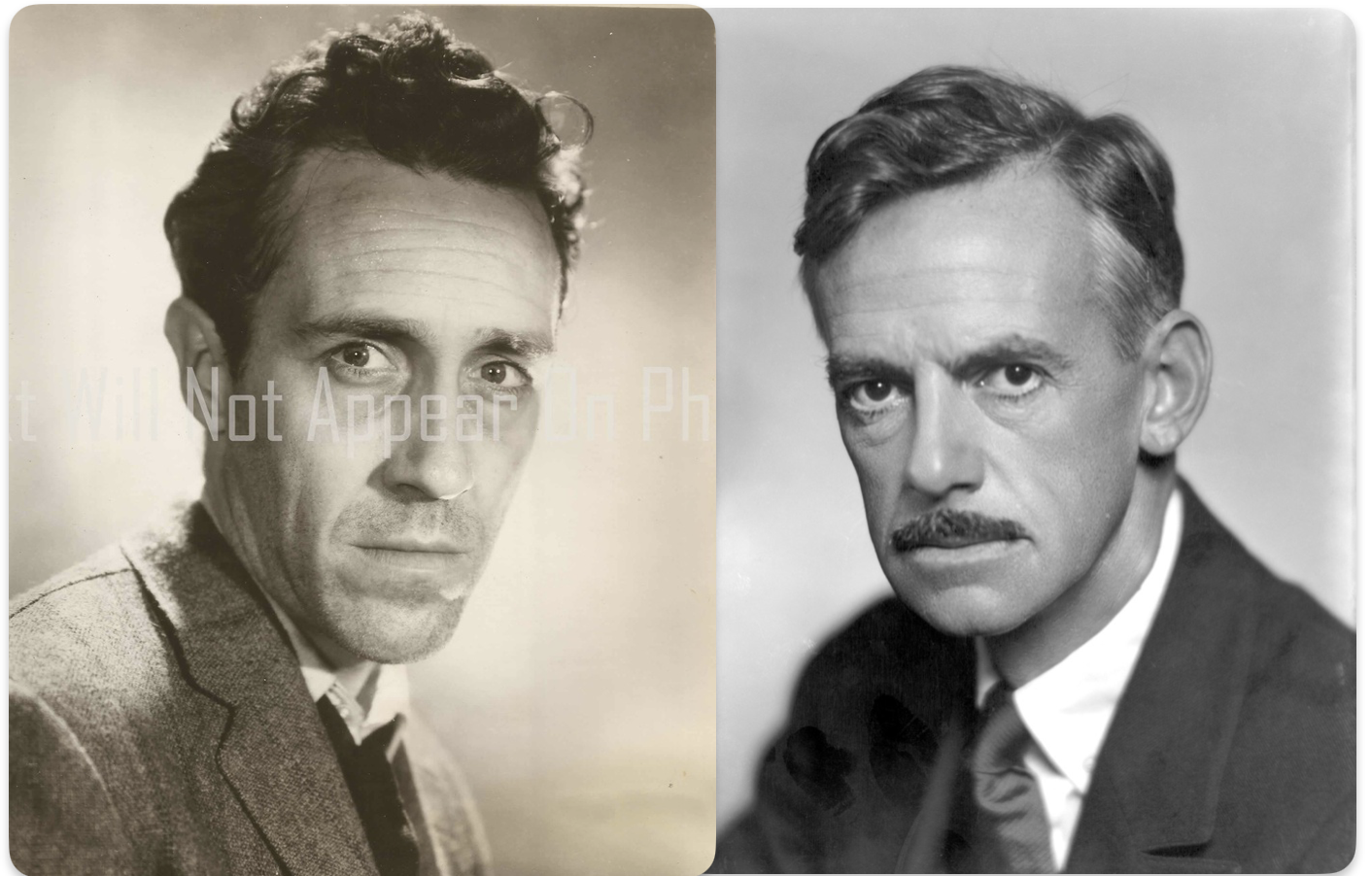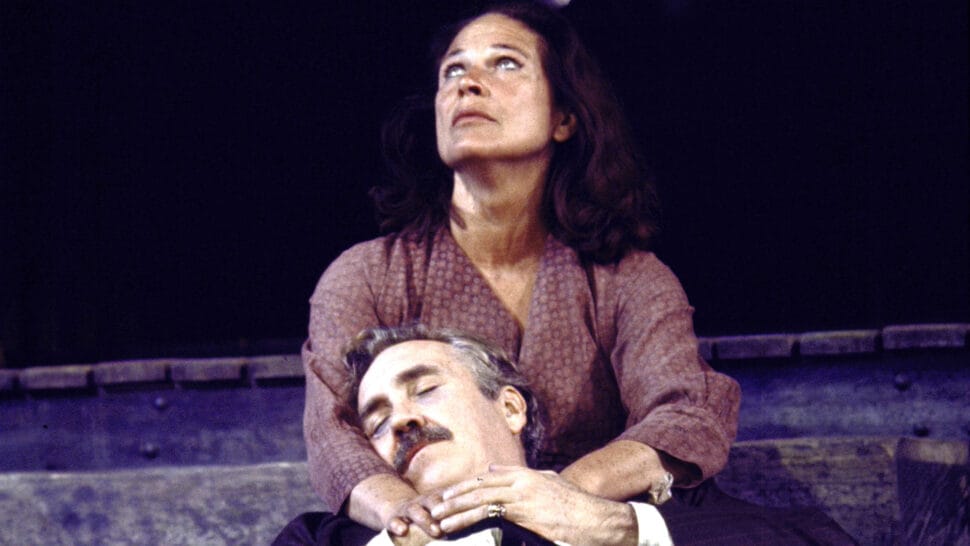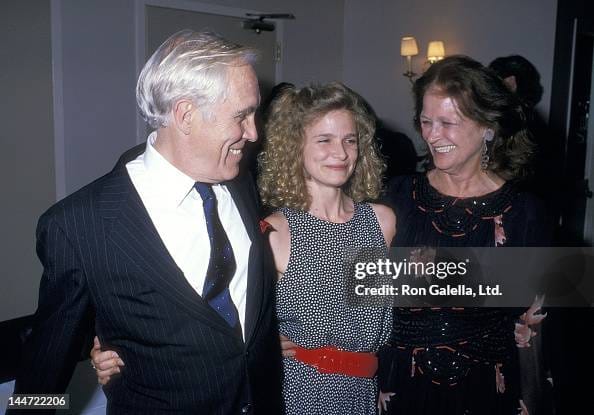Jason Robards & Eugene O'Neill

Lives intertwined, beyond the grave.
I must talk about Eugene O'Neill now, before I go any further with movies. I'm sure I will revisit O'Neill many times, so consider this a "part one."
Eugene O'Neill is the biggest figure in setting the course of Jason Robards' life, aside from his parents and possibly my mother. O'Neill and Robards never met – O'Neill died just three years before the 1956 production of The Iceman Cometh, in which Jason starred as Hickey. But their lives and families had curious parallels, and the way O'Neill's plays wove into Robards' career and life is... well, it's supernatural.
Eugene O'Neill's life was wracked with familial tragedy, bouts of severe depression and alcoholism, multiple marriages and estranged children. He devoted himself to writing, with all the difficulty he knew it would create in his life. And write he did, 52 plays in all – including Anna Christie, Desire Under the Elms, The Emperor Jones – four of which won Pulitzer Prizes. He was the first American playwright to win the Nobel Prize for Literature, in 1936. (I recommend the terrific recent biography by Robert Dowling.) Towards the end of his life, as he developed tremors in his hands, O'Neill furiously wrote his most personal works before he was incapacitated, exorcising the ghosts of his past into Long Day's Journey into Night and Moon for the Misbegotten. When O'Neill died, despite his early renown, he had fallen into relative obscurity, his plays perhaps too difficult, too depressing, too honest.
Jason says in his unpublished memoir transcripts:
...his own country had deserted him. They just wrote him off as a piece of shit. O'Neill died virtually a pauper. He had no money, and he couldn't get any money. He died alone in a hotel room, a toilet hotel...(1980, p. 62)
The Spark
While at sea in the Navy during World War II, Jason discovered O'Neill's play Strange Interlude at the ship's library. As he tells it:
I thought it was a dirty book...I thought, "Strange Interlude, now that has got to be a spicy book." Imagine my disappointment when it turned out to be this serious play....I got absolutely fascinated. I'd never read anything like that before. I loved it. It was the first play I had read since high school. Then I started reading other plays.
He had been turned off of acting by his father's "heartbreak" in Hollywood, but reading this play of O'Neill's somehow brought him clarity that he would pursue acting when he returned home in 1946.
From Ric Burns' documentary "Eugene O'Neill".
There were even more similarities: they were both born on the road, their actor fathers both considered themselves might-have-been-great artists who sold out, and alcoholics their whole lives. Their mothers were absent from childhood: in the case of O'Neill, to morphine addiction, and for Robards, his mom divorced Jason Sr. and left the children in his custody when Jason was four and Glenn just two years old. She never let them call her "mom" or "mother," just her first name, Maxine, which they couldn't pronounce so they called her "Map-Mee."
They both became fathers much too young: O'Neill during a love affair, Jason in his first marriage right out of the war.
They shared alcoholism and an affection for what we would today call "dive bars" –places where real people go. And yet, they both preferred to do their creative work sober. O'Neill would have bouts of drinking heavily in flop houses, and clean up to write. Robards would generally drink after the show, never before.
And those haunted eyes.
Birth and Home
Starring as Hickey in O'Neill's epic play The Iceman Cometh (1956) was the start of Robards' success as an actor, followed quickly with the Broadway debut of Long Day's Journey into Night (1956) which catapulted him to stardom in the theater (along with film offers), and revitalized O'Neill as America's first great master playwright.
Robards recalls in his unpublished transcript:
From the beginning, The Iceman had a strange effect on me. It was as if I had found a home. That was where I came to be at home, every night. And I was there every night. It didn't matter if I felt low in energy, or my pipes were blown. Nothing could keep me away. If I was alive, I was going to be there. It was as simple as that. (1980 transcript, p34)
While The Iceman is undoubtedly a dark and tragic play, Hickey's entrance gives a hint to the convivial homeyness to which Robards refers:
Hickey's entrance in the 1960 teleplay of Iceman.
Death
In 1972, O'Neill nearly took Jason's life. At long last, the film version of The Iceman Cometh was to go into production. For the lead, they did not cast Jason, the groundbreaking star; the director saying he wanted to go in a different direction. In despair and rage, Jason got drunk at The Old Place (a Malibu mountain bar) and attempted to drive home on the winding canyon roads. He crashed his car, and nearly died.
Resurrection
And then, O'Neill was the resurrection.

"Six months (after recovering from the accident), I was in a play in a little town outside Chicago, just because Colleen (Dewhurst) and Jose (Quintero) and I had wanted to do Moon [for the Misbegotten] all our lives, and at the same time we all had reached a point where we had nothing to lose by doing it. Jose was recovering from a depth of his own. He did a fucking "Under the Volcano" number of his own down in Mexico....He was down to eighty pounds. Drunk. They couldn't find the fucker. And Colleen had been through everything. Out of work, teeth falling out of her head.
And we went to do it in the country for three weeks, for nothing, and out of that came a whole fucking new career. O'Neill came to our rescue....
Jose said, "You see what he did? That sonofabitch, every time we're at our worst, he revives us, he brings us to life."
Moon for the Misbegotten went on to a legendary run on Broadway. Colleen Dewhurst won a Tony for Best Actress. O'Neill got Jason working again, and – eventually – sober. Incarnating a man dying of alcoholism, night after night, in this tragedy was one part of him getting sober – he could see where his life was headed if he didn't stop. (My mom threatening to leave him was the other part.)
O'Neill was also there during times of uncertainty – Jason would return many times to mount small productions of the one-act, two-man show Hughie with his dear friend Jack Dodson for at least 25 years.
Reincarnation
And Jason came full circle with O'Neill and Jose in the 1985 revival of The Iceman Cometh, repeating his role of Hickey, but closer in age to the character as it was written.
An even bigger circle was completed in the revival productions of Long Day's Journey Into Night and Ah! Wilderness, played in repertory in 1988 with both Jose and Colleen Dewhurst. Jason now plays the father, Colleen the mother. Ah! Wilderness is the comedic fantasy version of Long Day's Journey, the most personal of O'Neill's tragedies.
I saw and enjoyed these productions, but was not fully aware at the time how important these shows were for my dad personally – and Jose and Colleen and my mom. How far they all had come. How they could face the tragedies and demons of O'Neill's which had once struck so closely, so personally. They could dive in now, but return to a safe place, sober, loved, stable.

While I am generally someone who looks to evidence and science, Dad's connection to Eugene O'Neill is beyond rational understanding – it is kismet, enchanted, beyond-the-grave stuff. Even though he usually left the mysticism to Jose, he felt it. In the clip below, he talks about performing Moon for the Misbegotten, a 3 hour and 45 minute play, eight times a week, with a Sunday matinee and evening performance:
Clip from Rick Burns' documentary, "Eugene O'Neill".
Redemption
In a transcendental way, it feels like Jason Robards was the second half of Eugene O'Neill himself, the completion, maybe even the happy ending that O'Neill never had. Perhaps the ghost of Eugene O'Neill guided my dad to a happier life.
I wish O'Neill had had redemption, and didn't have to say, as the last line of his life – and know it was true – "Born in a hotel room, and Goddamnit, died in a hotel room." And know that he'd been turned down by his own country, his work being ignored in America....
Maybe I'm wrong, but for me, redemption was something I needed more than going on the way I was for the sake of the art. I love my work, but redemption for me is Lois and Jake and Shannon and being together. I just wish O'Neill could have had that sort of peace of mind. I guess it just wasn't meant to be." (1980 transcript)
Jason remembers that day he went to see The Iceman as an acting student in 1946:
...when we got to our seats, someone said to me, "Did you see that guy standing in the back?" I said no. He said, "That was O'Neill." He was there in the theatre with me, and I never even saw him. My one chance. If I'd had even the vaguest idea of the role he would play in my life, I'd have gone after him. I would have found him. But I didn't.
"I'm not a mystic. I'm earth-bound, but in a funny way, I think he's here now. I know he is. And I know he's here when I'm doing one of his plays."